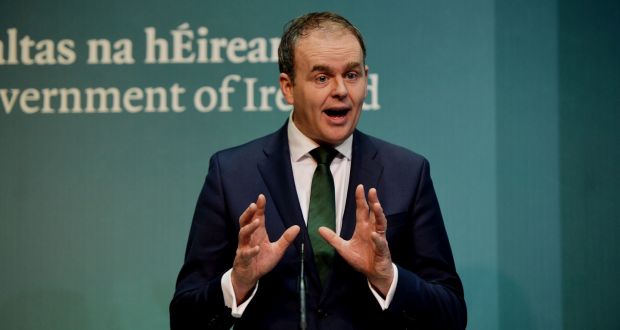To much fanfare, the government today announced 3,000 new places on 138 undergraduate courses funded by €24 million from the Human Capital Initiative. Hooray.
Except almost all of these courses are “key skills areas”, which the government says are “high priority”. In the surprise of the year, none of these areas are anywhere near the Arts Block. Instead the future seems, apparently, exclusively in information and communication technologies and software development.
Minister for Education Joe McHugh said today that the government “is looking to tomorrow; our education system is backing the vision; and our universities and colleges are answering the call to prepare students with better skills for a changing world of work”.
Clearly, the government has a very narrow vision of what tomorrow will look like. It is common knowledge that this government relies on two things to keep the economy afloat: miniscule taxes on massive technology corporations and the construction sector. Alternative ideas for what the economy and society could look like without these two unsustainable and morally dubious crutches doesn’t appear to have a place in “tomorrow”.
None of this money is going to go into courses like sociology, economics, history, politics or English literature, which could help come up with such alternative visions. With all due respect to software development courses, I don’t think they’re aimed at equipping students with the skills or knowledge to look at society and see alternative ways it could be set up. Software developers, and students in other technology-based courses, do absolutely essential work and will undoubtedly play an extremely important role in society moving forward, but we need more than them if we want to create an equitable and fair society where everyone’s needs are met. We also need critical thinking and forthright debate from people well versed in history, culture and the social sciences.
Enterprise might bring to mind prosperity, creativity and €4 cappuccinos, but in reality it often means companies that tell the government what they want
Minister for Higher Education Mary Mitchell O’Connor said she is “determined that we will continue to develop our programmes and work with enterprise to ensure that our graduates are among the best prepared and equipped to meet our future challenges”.
“Working with enterprise” is one of this government’s favourite phrases – and it’s not surprising that it’s bled into universities themselves. But enterprise is a movable feast: it might bring to mind prosperity, creativity and €4 cappuccinos, but in reality it often means companies like Google and Facebook, which tell the government what they want and invariably receive what they’ve demanded.
Mitchell O’Connor doesn’t see Google and Facebook as future challenges – she sees them as the future. It is becoming increasingly clear that Facebook is having a detrimental effect on politics, helping to sway elections by targeting voters with fake news and creating feedback loops where people only hear what they want. Google, meanwhile, is today’s answer to the Tyrell Corporation. Almost comically evil, it sucks up all of our information and, like Facebook, creates feedback loops where we only see and hear what we like or sells our data to advertisers who then target us.
Instead of fighting these forces, or even looking to slightly harness their enormous power, our government has joyfully gotten into bed with them. Our higher education sector is chronically underfunded. The Cassells report continues to gather dust, lecture theatres become more and more cramped and higher education becomes an increasingly onerous financial burden for many students. But for the government, these problems are less pressing than creating a workforce it can spit into a high-tech employment market.
Mitchell O’Connor doesn’t see Google and Facebook as future challenges – she sees them as the future
Meanwhile, Trinity seems happy to participate in the charade. Its newest motto reads, apparently without a trace of irony: “A good education is life-changing. A great one is world-changing.”
If Trinity wants to change the world, then it’s not clear from the education it provides to its students, or from the College’s approach to society. Every night homeless people sleep out in the freezing cold outside Trinity’s walls. Where are the College’s statements about that? Why aren’t students being taught about why those people don’t have homes? Why aren’t students being told how we can reimagine Ireland so that people don’t have to sleep on the streets? That would be real change.
But on issues like homelessness, a crumbling health service, tax avoidance and income inequality, Trinity and the government have little to say. Instead we get a new Business School and investment in communication technologies – whatever they’re supposed to be.
The government and its educational facilities don’t want Becketts and Wildes. They just want workers. The most recent investment in technology and science, and their dismissal of the arts, humanities and social sciences, makes this abundantly clear.







